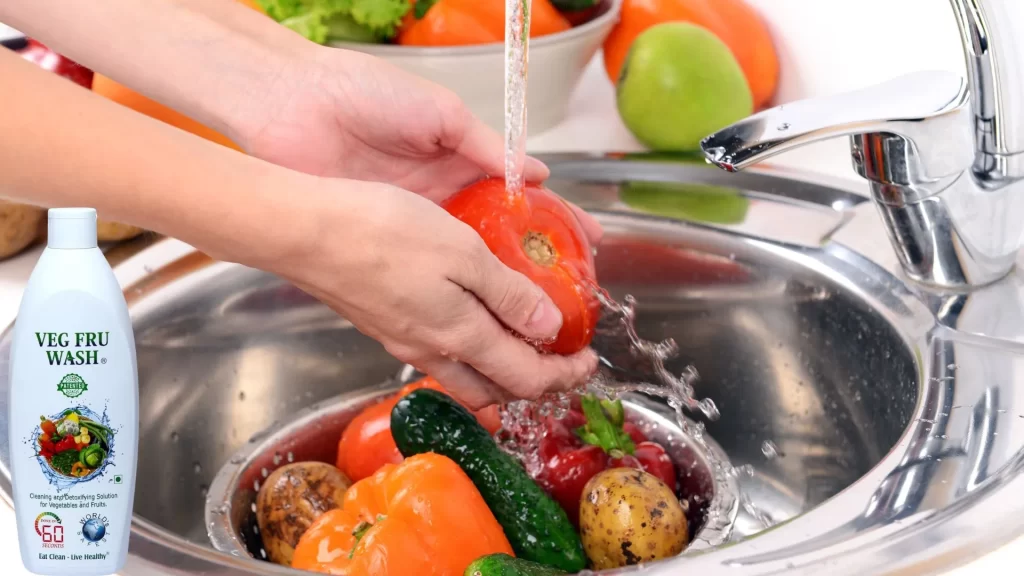In today’s health-conscious world, ensuring the safety and cleanliness of our food is paramount. One of the simplest yet most effective ways to protect ourselves and our loved ones from harmful contaminants is by thoroughly washing our vegetables. This blog will delve into the reasons why washing vegetables is crucial, the potential risks of unwashed produce, and the best methods for doing so.

Why is Washing Vegetables Important?
- Remove Pesticides and Chemicals: Modern agriculture often involves the use of pesticides and chemicals to protect crops from pests and diseases. While these substances help increase yield and quality, residues can remain on the surface of vegetables. Washing helps reduce these residues, making the produce safer for consumption.
- Eliminate Bacteria and Pathogens: Vegetables can be contaminated with bacteria such as E. coli, Salmonella, and Listeria during their journey from farm to table. These pathogens can cause foodborne illnesses, leading to severe health issues. Proper washing can significantly reduce the risk of such infections.
- Remove Dirt and Debris: Vegetables, especially root vegetables like potatoes and carrots, often come with soil and other debris. Washing ensures that all visible dirt is removed, making the produce more appealing and ready to eat.
- Improve Taste and Texture: Clean vegetables tend to have a better taste and texture. Removing contaminants can enhance the natural flavors and provide a more pleasant eating experience.
Potential Risks of Unwashed Vegetables
- Foodborne Illnesses: Consuming unwashed vegetables increases the risk of ingesting harmful bacteria and pathogens, which can lead to food poisoning and other serious health conditions.
- Pesticide Exposure: Long-term exposure to pesticide residues can have adverse health effects, including hormonal disruptions and increased cancer risk. Washing can help minimize this exposure.
- Chemical Residues: Apart from pesticides, vegetables can also be treated with preservatives and waxes to extend their shelf life. Washing helps remove these substances, making the vegetables safer to eat.
Best Practices for Washing Vegetables
- Use Clean Water: Rinse vegetables under cold, running water. This is effective for removing dirt, bacteria, and some pesticides. Avoid using soap or detergents, as they can leave harmful residues.
- Soak and Scrub: For vegetables with tough skins or those that grow close to the soil, such as potatoes and carrots, soaking them in water for a few minutes and then scrubbing with a brush can help remove stubborn dirt and residues.
- Use Vinegar Solution: For a more thorough cleaning, consider using a vinegar solution (one part vinegar to three parts water) to soak vegetables. Vinegar has natural antibacterial properties and can help reduce pesticide residues.
- Peel When Necessary: Peeling can be an additional step to remove contaminants, especially for vegetables that are heavily sprayed with pesticides. However, keep in mind that peeling can also remove some nutrients.
- Dry Properly: After washing, dry vegetables with a clean cloth or paper towel. This helps remove any remaining bacteria and reduces moisture that can promote bacterial growth during storage.
Conclusion
Washing vegetables is a simple yet essential step in ensuring food safety and enhancing the quality of your meals. By adopting proper washing techniques, you can significantly reduce the risk of foodborne illnesses and exposure to harmful chemicals. Remember, clean vegetables are not only healthier but also more enjoyable to eat. So, make it a habit to wash your produce thoroughly before consumption, and enjoy the peace of mind that comes with knowing your food is safe and clean


